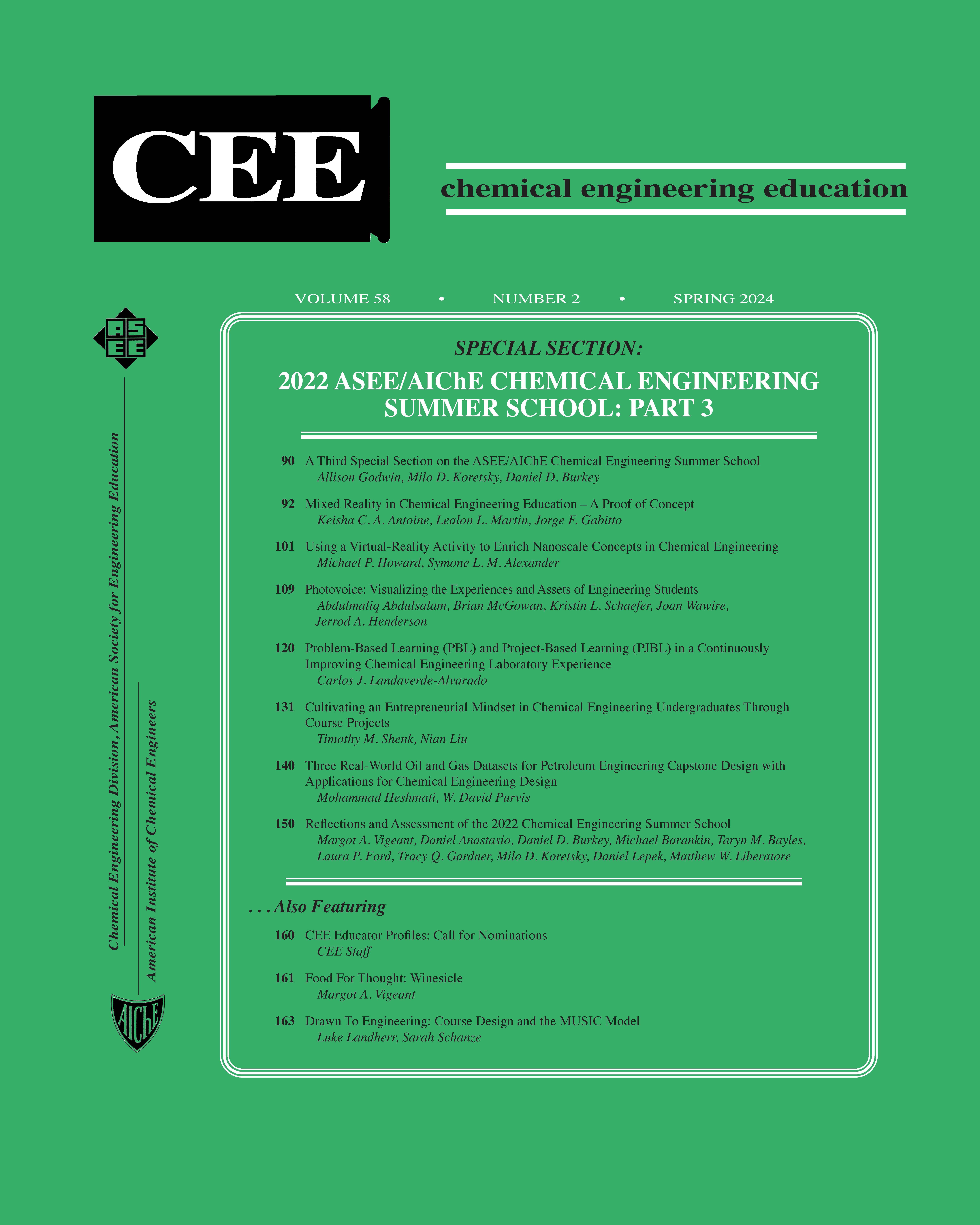Reflections and Assessment of the 2022 Chemical Engineering Summer School
DOI :
https://doi.org/10.18260/2-1-370.660-132193Résumé
The ASEE/AIChE Chemical Engineering Summer School (ChESS) is a week-long quinquennial faculty development event that brings together early-career faculty for workshops and community building for nearly 100 years. The most recent ChESS took place from July 25-29, 2022 at the Colorado School of Mines in Golden, CO, and brought together over 200 participants and presenters. The Summer School is a community-building exercise unique in engineering. It is our hope that by capturing some of the outcomes and processes in this paper that it will facilitate future offerings of the Summer School.


